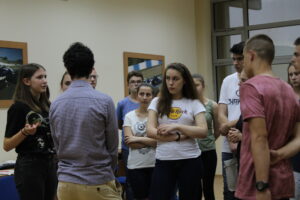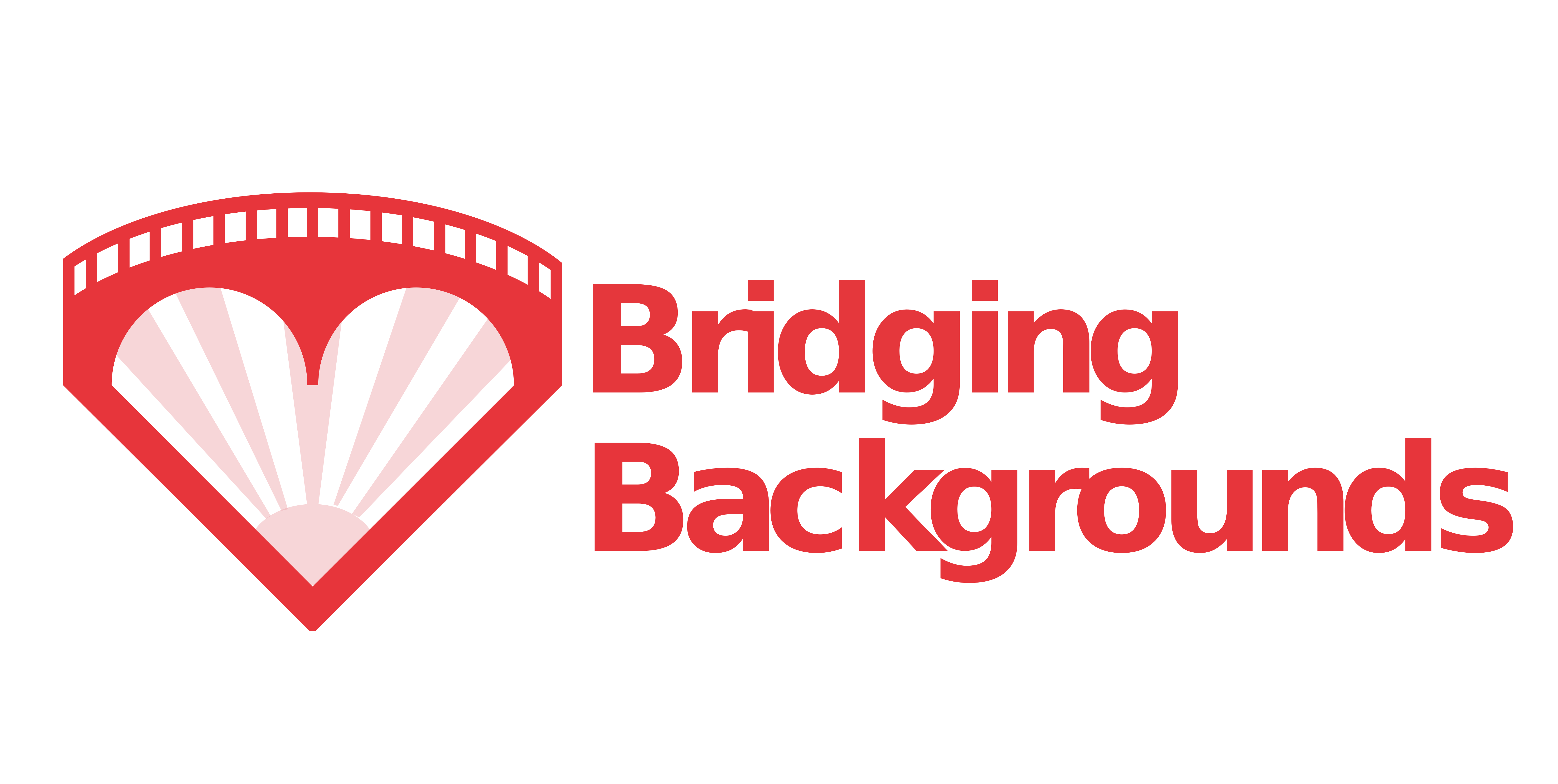Having to deal with unbelievably hot weather, in addition to having to travel to get Skopje’s FON University, high school participants from all over Macedonia found their way to the “Bridging Backgrounds” conference on Wednesday, June 28, 2017. Funded by a grant from Davis Projects for Peace, “Bridging Backgrounds” is youth program exploring topics of inter-ethnic understanding, tolerance, and human rights. With a program compiled by Pitzer College student and Davis Grant recipient Brendan Schultz, the first day of proved to be true to the conference’s goals and worth all the work that the organizing team has put in to make this conference a possibility.
As the participants entered FON’s window-covered building, they escaped the heat and began the process of making connections with their peers in a bearable, air-conditioned environment. They had about fifteen minutes to unpack, unwind, and get to know their roommates for the next week before they were off to their first official activity: the ice-breakers. Led by Bard College Berlin student and volunteer Elena Gagovska, they, as all icebreakers, had a quiet start. People were still shy, and, it was not surprising that it took a little while for interactions to start feeling more organic. By the third activity, Two Truths and a Lie, Elena revealed that at the age of twenty, she can embarrassingly not ride a bike, while two participants disclosed their dislike of movies and had this preference jokingly questioned by the rest of the group. Furthermore, due to bus delays, only about a dozen of the participants could attend the larger part of the introductions. This number, however, made it the perfect setting to play the game Mafia – a suggestion which was made by one of the participants, making this a student-centered experience from the get-go. The informality of this game allowed the participants to start forming more natural relationships with each other.
Once everyone arrived, one final icebreaker was led by Brendan in which the participants stood in a circle and stated their name, where they are from, favorite place, hobby and interesting fact about themselves. People’s interests were as diverse as their geographical backgrounds: some were into sports, others into writing, a few into history with their favorite places ranging from Ohrid to Italy to a staggering number of people naming US cities they had never traveled to such as New York and Los Angeles.
After dinner and a small break, Law Student and assistant coordinator Hristijan Zafirovski conducted the first part of the opening ceremony by giving a personalized speech. Hristian spoke about he felt that the presence of ethnic tensions, as well as troubling events in Macedonia, catalyzed his desire to do something about these issues in his country. He was truly struck with the severity of the problem when he witnessed a fight with an ethnic basis for the dispute between Macedonians and Albanians in his hometown of Ohrid. So together with his friend and fellow Model European Parliament (MEP) peer Brendan, Hristijan helped bring “Building Bridges” into reality. After this speech, Brendan took the floor and talked about how his YES abroad exchange-year experience in Macedonia induced him to find a way to come back to the country that changed his life for the better. Only after the 2016 US Presidential Election – an outcome that brought some of America’s problems to the surface – did Brendan began to think about organizing a conference about inter-ethnic relations in a country that he holds dear to his heart. “We were looking for people who were already accepting of human rights,” said Brendan, pointing to the fact that this was not a conference that was to convince young people of the humanity of certain ethnic or religious groups. Rather this is a conference that will teach people concrete skills that will aid them in helping their communities in tangible ways through projects that they will devise themselves. “This project will end up affecting 500 people,” said Brendan, stating that the conference’s true impact will, indeed, be outside of the classroom.

However, this first day was wrapped up in a classroom space with a human rights education activity, Electioneering – an exercise that brought forth fruitful discussion. Facilitated by Brendan and Elena, the activity involved two signs being placed on opposite ends of the classroom, one reading “Agree” and the other “Disagree”. The facilitators would give a statement with which the participants had to agree, disagree or be a different level of neutral about. The idea was that the participants had to physically place themselves on either the end of the spectrum defined by the two walls, or somewhere in between, either closer to the “Agree” or “Disagree” sign, while still having the option of a pure center. For example, the first statement “Neo-fascist parties should be banned” prompted the majority of students to choose a neutral degree with only one student firmly agreeing and four students firmly disagreeing. Arguments of the rights of freedom of speech, participation in elections and public assembly, as well as dealing with the root of neo-fascist ideas rather than what they medical wellness called “Band-Aid solution” were brought forth by the “Disagree” camp, while the “Agree” side focused on the violence that (neo) fascist rhetoric incites and looking at the past of countries such as Germany as a cautionary tale for how destructive this ideology can be.

Great discussion was brought forth with the second statement “Voting should be mandatory”, with most people falling into the agree camp, arguing for the benefits of pushing all citizens towards political participation and the ballot-box even if they are submitting an invalid ballot – something they claimed was a political statement and choice in itself. Moreover, the last statement read “All laws should be obeyed even if they are unfair”, which made the overwhelming majority fall on the “Disagree” side. With the mentioning of civil disobedience, the first day of a conference on Human Rights, which inherently entail having a sense of justice, could not have ended on a better note than on the reflection on a technique that has been relentlessly used in order to win and expand of list of universal rights found on documents such as “The UN Declaration of Human Rights”. The first day concluded with eager anticipation for the week exploration, discovery, and understanding to come.
Bridging Backgrounds Macedonia is organized by United by Love, a US-based non-profit, and is funded by Davis Projects for Peace. The views expressed in this piece are not endorsed by Davis Projects for Peace.

